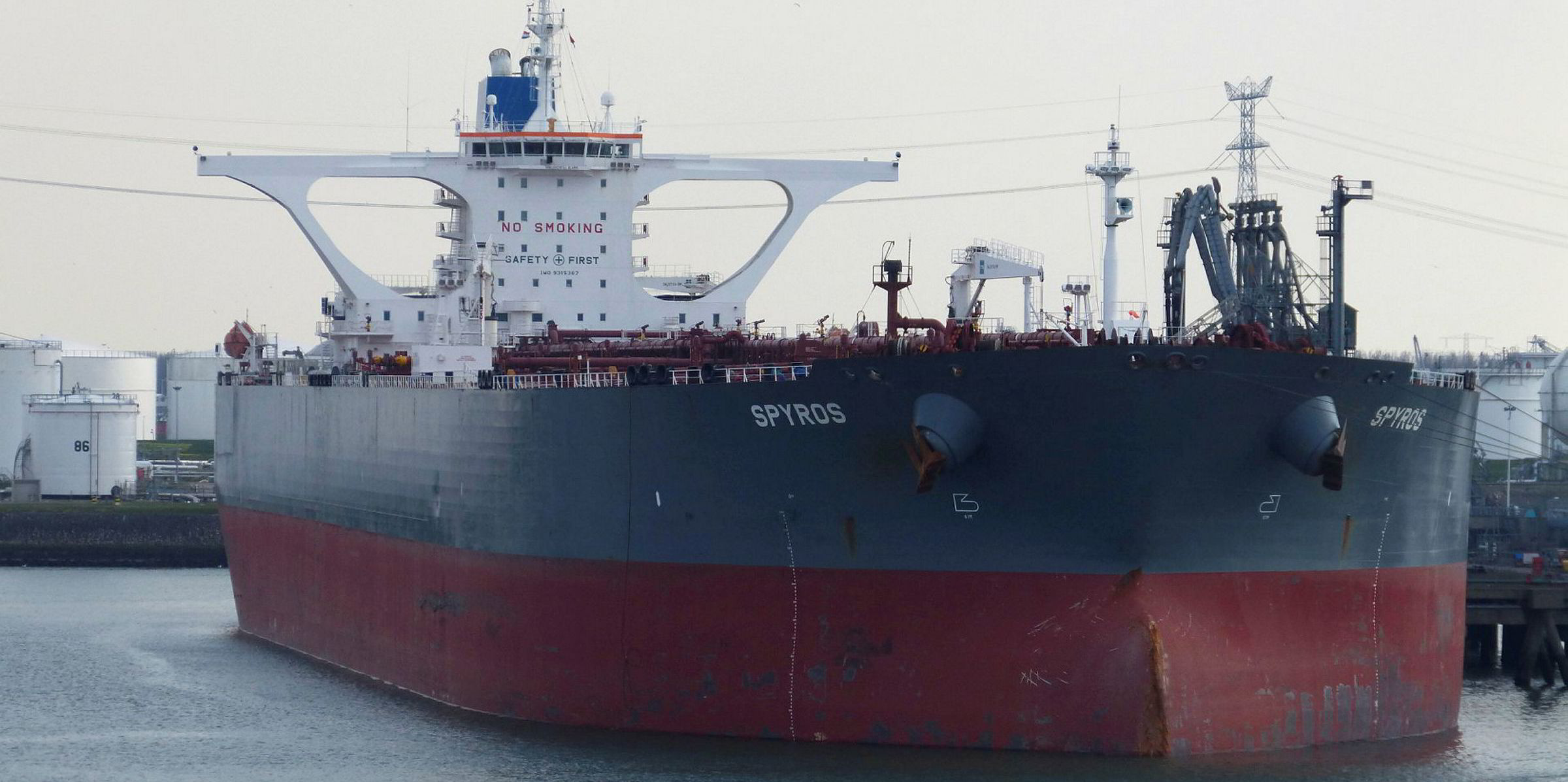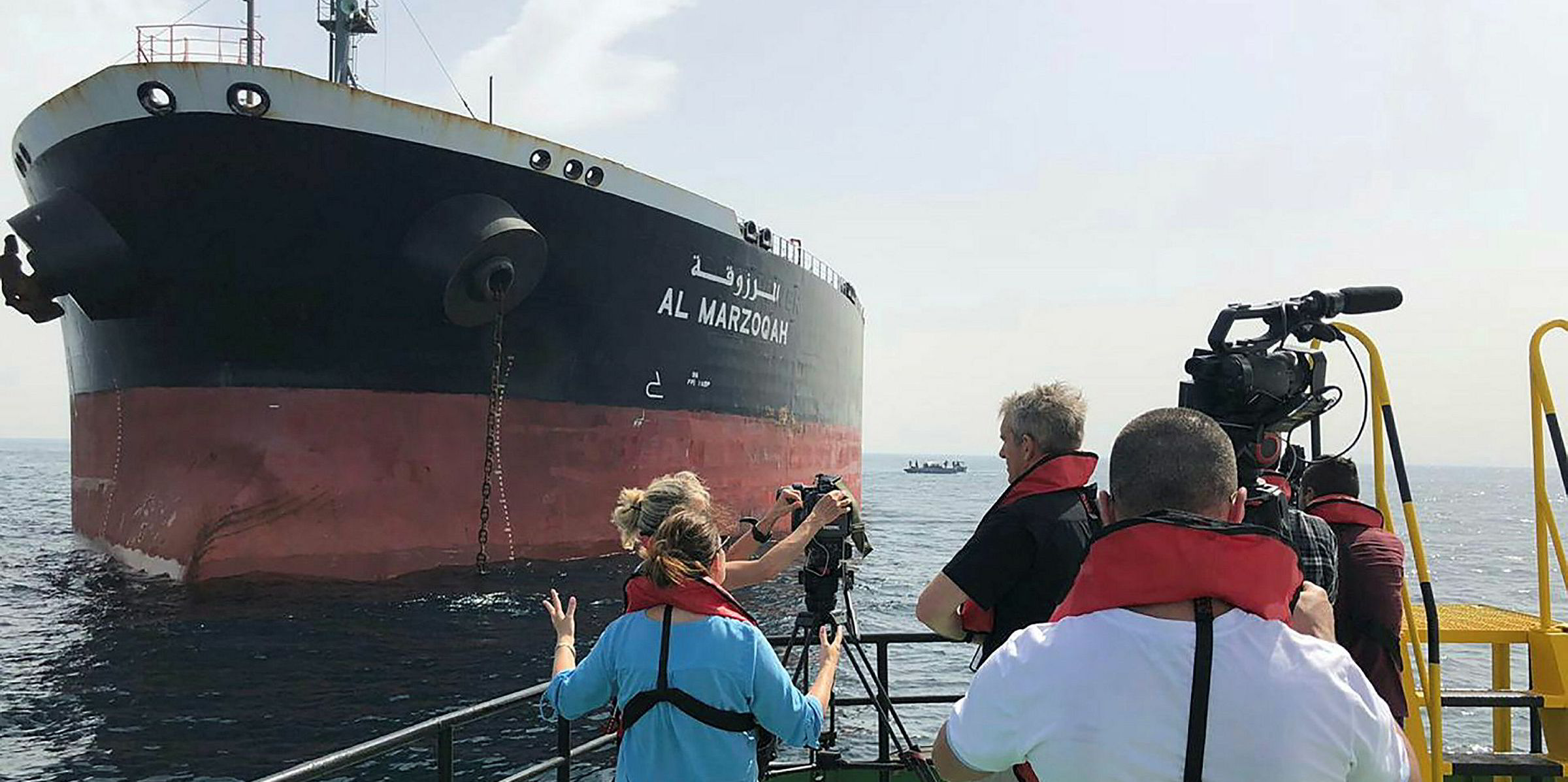Heightened tension in the Middle East has prompted optimism in the tanker market even though its actual impact on vessel operation remains muted.
On the benchmark Middle East-China route, spot VLCC earnings have risen over 50% this week to nearly $13,000 per day, according to brokers.
Among recent fixtures, pool manager Tanker International’s 298,330-dwt Ridgebury Artois (built 2001) is provisionally booked to lift from the Middle East during 30 May-1 June by S-Oil for shipment to South Korea at Worldscale 35, equivalent to $12,600 per day.
“The heightened supply risks in the MEG should prove bullish for tanker rates,” Arctic Securities predicted.
“The market’s knee-jerk reaction will be to fast-forward chartering in order to move as much oil out of the region as quickly as possible.”
“Owner’s push for higher rates will likely be facilitated by cost increases as both bunkers and insurance are likely to be more expensive. Backdrop for a revival of the rate rally thus looks favourable on seasonal as well as cyclical grounds.”
However, some other industry officials point out the rally is based more on sentiments than supply-demand fundamentals, with the forecast chartering spree has yet to occur.
“VLCC earnings seems to be holding the $13,000-per-day level” despite some short-term bearish factors, such as prompt vessel supply, as well as the marginal West Texas Intermediate-Dubai crude price spread that disincentivises liftings from Middle East," according to Clarksons Platou.
According to data from Tanker International, only 16 VLCCs have been firmly booked to lifting during 1-10 June, compared with the expected 30 vessels.
Escalating tension
Geopolitical risks have heightened in the Middle East since the US decided to tighten sanctions on Iran in early May over nuclear programmes.
Over the past weekend, four vessels—including two crude tankers owned by Bahri—were apparently struck by projectiles when anchoring or operating off the United Arab Emirates port of Fujairah.
According to media reports, US officials have suggested Iran or its allies could be behind the attacks. Iran has denied any involvement.
Industry officials have observed little impact from the tension on tanker operations, but worries over supply disruptions persist.
“[This] is more of a ratcheting-up in geopolitical tension, rather than having some physical impact—at least at this point,” said ClipperData’s commodities research director Matthew Smith.
Some vessel owners and charterers are starting to take some pre-cautionary measures, which could affect freight and bunker markets at a later stage.
At least five refiners in South Korea, China, Japan and Southeast Asia may lift Middle Eastern crude and condensate in smaller vessels if the geopolitical tension rises further, according to a S&P Global Platts survey.
NYK Line has asked its crew not to refuel, load cargo or personnel at Fujairah but stopped short of prohibiting its vessels from calling there. “We will see the situations first,” a NYK spokesman told TradeWinds.





